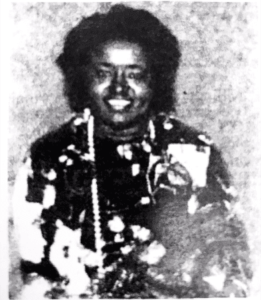
Every February in the United States, as well as countries around the world, we take time to recognize and honor the contributions of the African American Community.
Black History Month was first celebrated in the US in 1970. A small group of African American educators and students from Kent State University, located in Kent, Ohio, originally proposed the idea in 1969. A year later, the first celebration of Black History Month took place from January 2 to February 28.
Since that time, other countries have begun recognizing Black History Month, including the United Kingdom, Germany, Canada, and Ireland. Celebrations honoring African American scholars, educators, authors, artists, scientists, and others within the community occur on an international level throughout the month of February.
Like many other educational systems, the Montessori Method has seen important contributions from the African American Community.
The basis of the Montessori movement was founder Maria Montessori’s belief that all children have the potential to become self-motivated, independent, and life-long learners when supplied with the appropriate environment and tools. She began to develop this belief while observing children’s behaviors in one of the poorest neighborhoods in Rome.
Historically marginalized communities within the United States, such as some African American Communities, identify with Montessori’s message of inclusion and hope. This has lead to a growing number of Montessori schools serving children from such communities. African American Montessori pioneers include Roslyn Williams and Lenore Gertrude Briggs.
Roslyn Williams (1921-1997)
Roslyn Williams’ interest in the Montessori Method began as a parent. Dissatisfied with the education options available for her own preschool-aged children in early 1960’s Harlem, New York, she took matters into her own hands.
Williams, along with other families, set up an alternative educational solution. What would later be known as “The Urban Child Program”, started as a few informal, experimental Montessori classrooms. Williams and her daughter Meredith were early, and important, players in this experiment.
From her experience with these early Montessori classrooms, located in the Harlem housing projects, Williams helped to organize and lead the “Central Harlem Association of Montessori Parents (CHAMP).
In this role, Williams wrote grants, headed up fundraising efforts, secured space for Montessori classrooms, and solicited the support of other educators within the Montessori community.
Through her work with CHAMP, Williams pushed for educational reform in the areas of racial equality as well as the integration of students with special needs. During the 1960’s many students were bused to different schools due to segregation by race or disability. Williams also worked to make sure that parents and other members of the community had the means available to become certified Montessori teachers. She began the initial Project CHAMP Teacher Training Program, petitioning the American Montessori Society for training support within the community.
It was Williams’ belief that all children deserved to experience the same high standards in education, like those that are so integral to the Montessori Method.
Lenore Gertrude Briggs (1928-2015)
Lenore Briggs emigrated to New York City from the Caribbean country of Grenada in 1965. Her interest in the Montessori method was originally sparked as a young teacher in Grenada.
The mother of six children herself, Briggs opened a home day care center in 1973. The daycare center grew to first a preschool and then a kindergarten. Originally named “Mom’s Center for Early Childhood Development”, Briggs later renamed the center “Lefferts Gardens Montessori School” (LGM) after she graduated from New York University with Master’s Degree in Early Childhood Montessori Education in 1986. This school provided a high quality, affordable, Montessori-based experience to children who, otherwise, would not have the opportunity to attend such a program.
LGM grew quickly, serving children from all around the New York City area. This growth resulted in the installment of additional classrooms, as well as the creation of the Parents Activity Growth (PAG). It is the goal of PAG to support education and secure funds for the continued quality education of children in the community.
Briggs retired in 2007, at which time her son, Anthony Briggs took over as Executive Director. Anthony Briggs, who is trained in Montessori Education, has been charged with the ongoing execution of his mother’s vision as LGM continues to serve the children and families in and around New York City. In recent years, LGM has expanded it’s growth and is comprised of completely green materials
In the spirit of Maria Montessori herself, these forward thinking African Americans have made it their life’s mission to insure that every child has the opportunity to thrive, no matter their circumstances. The same strong ideals that Maria Montessori employed to build the Montessori Method are mirrored in the work of Williams, Briggs, and countless others within the African American community.